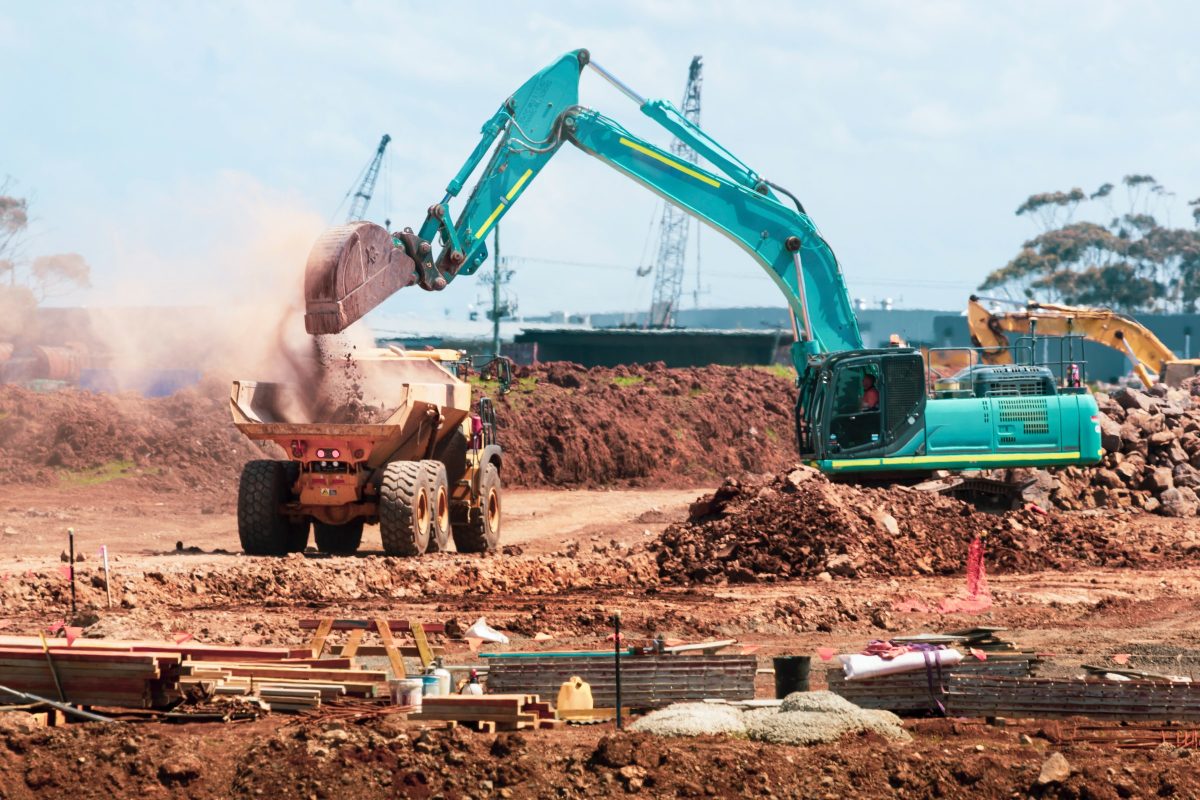
This article first appeared in Moneyweb
The Constitutional Court confirmed the invalidity of the PPPFA regulations on February 22. A new cloud of uncertainty hangs over the rollout of the government’s multibillion-rand infrastructure investment programme.
Economist Dr Roelof Botha said an advisory notice sent by National Treasury to organs of state about the invalidity of 2017 regulations published in terms of the Preferential Procurement Policy Framework Act (PPPFA) poses “a huge risk” to construction activity.
“If people wait before they spend and government waits before putting out a tender or spending money, they are postponing economic activity and ultimately that is going to impact GDP growth in 2022,” he says. “That is a huge concern.”
A Constitutional Court judgment on February 22 confirmed an order by the Supreme Court of Appeal (SCA) of the invalidity of the PPPFA regulations and prompted National Treasury to issue the advisory notice.
Regulations ‘unfair’
This follows Afribusiness NPC successfully arguing in the SCA that the 2017 regulations were unfair because they allowed for ‘pre-qualifications’ to be set for tenders – such as state institutions declaring that only black-owned businesses qualified to tender.
Treasury launched an urgent application on March 4 to obtain clarity from the Constitutional Court on whether the 2017 regulations remain valid until February 15, 2023, unless repealed sooner, or are no longer valid from February 16, 2022, the date of the Constitutional Court judgment.
It stressed its advisory notice to organs of state is intended “to curtail the risk of awarding tenders based on regulations that may no longer be valid” and is not a directive or instruction.
The notice advised organs of state that:
- Tenders advertised before February 16, 2022, be finalised in terms of the 2017 regulations.
- Tenders advertised on or after February 16, 2022, be held in abeyance.
- No new tenders be advertised.
This has reportedly resulted in many government entities complying with the advisory notice.
Botha referred to the State of the Nation Address in which President Cyril Ramaphosa announced the appointment of former Exxaro Resources CEO Sipho Nkosi to head a team in his office to cut red tape across government.
“Now we have exactly the opposite happening. This is a very unfortunate paradox,” he said. National Treasury last week published draft Preferential Procurement Regulations for public comment, with a closing date of April 11. Meanwhile, confidence in the building sector increased in the first quarter of 2022 to its highest level since early 2018.
Building confidence
The FNB-BER building confidence index recently released rose to 40 index points on a 100-point scale from 34 in the fourth quarter of 2021. The latest Afrimat Construction Index, also released on Tuesday, revealed that the construction industry staged a remarkably swift recovery from the Covid-19 induced slump in the second quarter of 2020 to increase by 74% within only two quarters.
However, Botha, who compiles the index, says progress since then has been muted, largely because of the slow rollout of the government infrastructure programme and a slowdown in commercial building.
Botha says a year-on-year improvement of 0.8% was nevertheless realised in the fourth quarter of 2021 and a 1.3% improvement achieved over the pre-Covid-19 fourth quarter of 2019.
Improvements ‘not enough’
FNB senior economist Siphamandla Mkhwanazi says although the index is at a four-year high, most of the improvement in the business mood came from building material manufacturers and building sub-contractors.
“If we look at the underlying survey data, there is a clear recovery in building activity, especially smaller projects,” he says.
“While this is welcomed, in value terms, it may not be enough to boost the sector meaningfully. For a more sustained improvement, we need demand for new buildings to pick up from the current weak levels.”
Ups and downs
Botha says the receding fourth wave of Covid-19 infections may pave the way for significantly higher levels of construction sector activity during 2022 but warned about the impact of the war in Ukraine on the domestic economy.
He says continued delays in finalising public sector contracts for construction tenders is also of concern and highlighted the backlog in procurement at the SA National Roads Agency (Sanral).
Moneyweb reported this month there was a significant delay by Sanral in the adjudication and awarding of its tenders, resulting in 258 projects collectively valued at R31.7 billion being rolled over to the current 2021/22 Annual Procurement Plan.
Botha says unless government acts swiftly to make good on its repeated promises to remove unnecessary bureaucratic obstacles facing the private sector, the repair and expansion of the country’s infrastructure will continue to be stalled.
However, Botha says public sector infrastructure expenditure has increased by an impressive 22% in the current fiscal year, with an increase of more than 11% earmarked in the 2022/23 fiscal year.
“The country’s construction sector stands to expand from these increases.”
Infrastructure expenditure
Industry Insight CEO Elsie Snyman says total infrastructure expenditure announced in the 2022 budget increased marginally in nominal terms to R812 billion over the medium term expenditure framework (MTEF) period from 2022/23 until 2024/25 from R791 billion announced in the 2021 Budget.
“Unfortunately, it failed to take into account rising construction cost inflation, which averaged 11% in 2021, with an average of 8% predicted for the next two years. In real terms, therefore allocations decreased by an average of 6% over the next three years,” she says.
Botha says he concentrates on shorter term data, such as this year’s budget, because it is more trustworthy than the MTEF.
“The fact is the government managed to increase actual infrastructure expenditure in the current fiscal year. It’s not a 100% figure yet but at R223.6 billion is probably about 98% of what it’s going to be.
“That is a 22% increase over the previous year, which was obviously a low base because of the worst of Covid-19. But even in real terms with average inflation last year of 4.5% for the economy as a whole it’s impressive,” he says.

